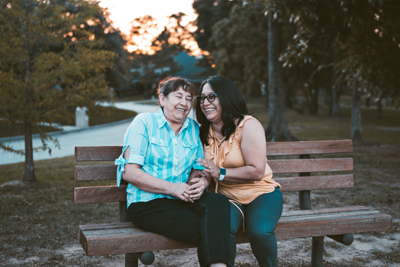Dr Jill Forer Fabulous After 50 Interview

Fabulous After 50: Everything You Need To Know
Dr Jill Forer MD answers your burning questions and offers tips on best to cope with the new stage of life.
The notoriously fabulous after 50, Kim Cattrall, not only brought menopause to the big screen in Sex and the City 2 but has been a vocal advocate claiming to "see menopause as the start of the next fabulous phase of life as a woman. Now is a time to "tune in" to our bodies and embrace this new chapter." And why shouldn't Australian women embrace how amazing the female body is, at all stages of life?
With 49% of Australian women aged between 45-55 years reporting experiencing five or more menopausal symptoms, it's time we lifted the lid on the taboo subject, especially with over 700 peri-menopausal women suggesting that with family support their menopausal symptoms were reduced. Along with support, studies have found that an ancient plant known as 'Black Cohosh' offers natural relief of menopausal symptoms such as hot flushes, night sweats, anxiety, sleeplessness and irritability.
Interview with Dr Jill Forer
Question: What is menopause?
Dr Jill Forer: Menopause is a term used to describe the natural stage in a woman's life when she's not had a menstrual period for 12 months. The years leading to menopause are termed 'perimenopause'.
This transition is associated with a woman no longer being able to reproduce, and her reproductive hormone levels fluctuating, which in turn, leads to bodily changes.
Question: What are the common symptoms associated with menopause?
Dr Jill Forer: Menopause and the years leading up to it (perimenopause) can result in bodily changes, which are common symptoms of this "change in life". This is due to changes that start to occur within our reproductive hormone levels.
For example, Oestrogen and progesterone are hormones that regulate your menstrual cycle. So when these hormone levels start to alter, the amount of eggs in your ovaries start to decline, which is why women start to see changes in their menstrual period, like cycle length (shorter or longer) and periods can be heavier or lighter too.
Other symptoms can include hot flushes and night sweats, sleep disturbance and fatigue, joint pain, increased anxiety and mood changes, vaginal dryness and discomfort, more frequent urination, loss of libido, as well as hair and skin changes.
Question: At what age should women begin thinking about menopause?
Dr Jill Forer: Menopause is a normal transition that affects every woman differently, however it's most common for them to reach this natural stage in life between the ages of 45-55 years old. But, some women can also experience early or premature menopause before the age of 40. It all varies from person to person, but a woman's body will naturally start to provide clues when she's entering the perimenopause stage, which can take 2-7 years alone.
Question: Will women commonly experience similar menopausal symptoms to their own mothers?
Dr Jill Forer: Not necessarily, every woman's menopausal experience can vary, however there have been studies that show a correlation between a mother and her daughter's experience with the natural stage and change in life.
 Question: Why is menopause such a taboo subject?
Question: Why is menopause such a taboo subject?
Dr Jill Forer: Simply because it's not traditionally been something that society or culture talks about openly, and that behaviour has created a social stigma that lives on. A lack of open education around the natural stage in life also contributes to this.
Because of this, menopause has been somewhat misrepresented and ignored in the past, so there's at times a lack of understanding of what it actually is. Therefore, when women do build up the courage to talk about it, it's common for others to feel uncomfortable. And so the tabooed cycle repeats itself.
Question: How can we decrease to taboo and embrace the topic of menopause?
Dr Jill Forer: The best thing we can do is start to talk about it openly, because that will eventually filter its way through the societal conversational norms.
Don't be afraid to speak to a friend or family about their own experience, you can talk to your partner, and ask your doctor questions on how to best cope with the natural change in life.
Not talking about it doesn't help at all.
Question: How does Black Cohosh offer relief of menopausal symptoms?
Dr Jill Forer: If your menopause symptoms are disrupting your day-to-day functioning, it's worth a visit to your doctor to discuss natural treatment options.
In my experience, one herbal treatment that is generally well tolerated and has good scientific evidence to support its use during menopause is an exclusive extract of the plant Actaea racemosa (Black cohosh).
This plant has been used traditionally for hundreds of years to help relieve menopausal symptoms, and now this plants mediating effect on the many complex processes involved in menopause are beginning to be revealed through medical research.
Question: What advice do you have for a women experiencing menopause?
Dr Jill Forer: Overall, remember you're not alone in this, so don't be afraid to talk about it so we can break down the taboo around the subject! It's always beneficial to adopt a healthy lifestyle and try natural remedies. But, always seek your own advice through a consultation with your own healthcare professional.
Interview by Brooke Hunter
Photo by rawpixel on Unsplash
Photo by Dario Valenzuela on Unsplash
MORE



